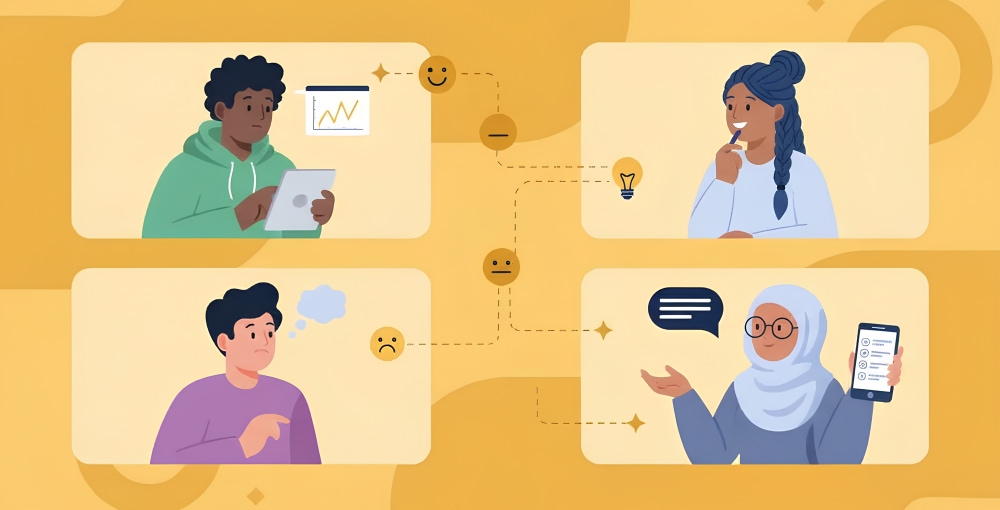Emotional Intelligence Quiz: A Comprehensive Guide to Self-Awareness

Take Emotional Intelligence Test Online
Start the Test →Understanding Emotional Intelligence and Why Quizzes Matter
Emotional intelligence, often called EQ, weaves together self-awareness, self-regulation, empathy, motivation, and social skills. These capabilities shape how we navigate stress, decode social signals, and build resilient relationships at home and at work. Unlike raw cognitive horsepower, EQ can be strengthened with intentional practice, reflective feedback, and guided learning experiences that illuminate blind spots and celebrate strengths.
People frequently look for practical tools that convert abstract concepts into actionable insight. In that search, many discover the emotional intelligence quiz as a friendly, structured doorway into understanding patterns of reactions, habits of attention, and typical approaches to conflict or collaboration. By surfacing tendencies with clear language, such a tool can catalyze thoughtful conversations and personal goals without overwhelming jargon.
Different providers design assessments with varied lengths, scoring models, and interpretive reports to suit diverse audiences. For those who like a short diagnostic followed by coaching suggestions, a concise emotional intelligence test quiz can highlight the most relevant development levers and suggest practices tailored to everyday moments, such as pausing before replying or reframing feedback into curiosity.
How EI Assessments Work: Structure, Content, and Scoring
Most EI assessments use scenario-based items, Likert scales, or behavior frequency prompts. The structure aims to reduce guesswork while capturing typical responses under pressure, during collaboration, or when confronting ambiguity. High-quality instruments triangulate multiple facets, self-perception and observable behavior, so the final profile tells a coherent story rather than a grab bag of traits.
Good instruments also vary item wording and context to avoid pattern answering and halo effects. Within those items, the phrasing of emotional intelligence quiz questions often blends everyday language with psychologically informed constructs, enabling respondents to recognize real-life moments like tense meetings, delicate feedback exchanges, or competing deadlines that strain attention.
Clear reporting makes the experience meaningful long after submission. To support reflection and growth plans, the explanation attached to emotional intelligence quiz answers typically includes definitions, practical examples, and micro-habits that scaffold improvement, from mindful breathing and naming emotions to perspective-taking and structured debriefs after difficult conversations.
Benefits You Can Expect: Performance, Wellbeing, and Collaboration
Organizations increasingly invest in EQ development because it pays dividends in teamwork, resilience, and customer rapport. Individuals see rapid gains in stress recovery, constructive conflict, and influence without authority. The magic lies in moving from reactive habits to intentional responses, aligning behavior with values rather than momentary impulses, even when the stakes feel high.
- Sharper self-awareness that reduces blind spots and reactive spirals.
- Calmer nervous system responses that prevent emotional hijacks.
- Empathic listening that fosters trust and deeper collaboration.
- Clearer boundary-setting that preserves energy and focus.
- More persuasive communication anchored in shared goals.
Team leads often appreciate how targeted feedback guides action. When choosing a diagnostic for managers, many gravitate to a focused emotional intelligence leadership quiz because it zeroes in on coaching style, feedback agility, and the capacity to align emotions with strategic intent during change.
Families and educators value age-appropriate designs that are playful, brief, and carefully worded. In such contexts, a thoughtful emotional intelligence quiz for kids adaptation sparks conversations about feelings, kindness, and coping strategies, turning everyday moments, like playground disputes, into opportunities for growth and empathy.
From Scores to Skills: Interpreting Results and Planning Growth
Numbers make the abstract concrete, but interpretation turns numbers into a roadmap. A good report clarifies what each score means, where strengths already shine, and which behaviors will deliver the biggest return on effort. The goal isn’t perfection; it’s a steady upgrade in emotional literacy and real-world habits that compound over time.
| Score Range | What It Suggests | Next Step |
|---|---|---|
| 90–100 | Consistently strong regulation, empathy, and communication | Mentor others and refine advanced skills like conflict facilitation |
| 70–89 | Solid foundation with a few situational gaps under pressure | Target triggers with micro-practices and feedback loops |
| 50–69 | Mixed results across domains and contexts | Prioritize one capacity, track habits weekly, and review progress |
| Below 50 | Frequent reactivity or misreads of social cues | Start with nervous system regulation and emotion labeling basics |
After reviewing your results, start small with two or three behaviors you can practice daily. For a deeper historical perspective on frameworks and measurement, many readers consult a classic emotional intelligence quotient quiz to compare terminology and scoring assumptions across generations of research. When you want a compact self-check before a performance conversation, it can be handy to use an agile emotional intelligence quiz test to prime attention and choose intentional language.
Choosing a Credible Assessment: Science, Design, and Fit
Not all assessments are created equal, so look for transparent methodology, clear construct definitions, and reliability evidence. The best providers explain how they validated items, minimized bias, and mapped skills to practical behaviors. Just as important is user experience: an engaging survey with accessible language encourages honest responses and thoughtful reflection.
Readers who enjoy research-backed models frequently explore a Daniel Goleman emotional intelligence quiz because it aligns with the well-known competencies of self-awareness, self-management, social awareness, and relationship management. This lineage clarifies why certain items matter and how they connect to leadership capabilities like influence, adaptability, and inspirational communication.
Convenience also matters for busy schedules. If you need a quick snapshot without jumping through hoops, you might appreciate an emotional intelligence quiz free online option that still offers a crisp summary, actionable tips, and pointers to deeper learning for those who want to invest time in a more rigorous pathway.
FAQs and Practical Guidance
How often should I retake an EI assessment to track progress?
Behavior change sticks through repetition, reflection, and feedback, so a quarterly cadence works for many people. To avoid overfocusing on scores, build a habit plan and use journaling or brief check-ins with a colleague to capture real-world shifts before leaning on a emotional intelligence quiz free as a checkpoint.
Can an EI assessment help with stress and burnout?
Yes, because self-awareness and regulation underpin recovery and boundary-setting. Start by identifying early warning signs, pair them with calming routines, and share your needs with teammates so workload and expectations are aligned rather than assumed.
What if my results feel lower than expected?
Treat the profile as a baseline, not a verdict, and look for one domain that seems most leverageable right now. After two weeks of focused practice, revisit a scenario where you usually struggle and note the differences in your reactions and outcomes.
Are these assessments suitable for cross-cultural teams?
Well-designed instruments use inclusive language and avoid culture-specific idioms, but context still matters. When debriefing, invite teammates to layer cultural norms and communication preferences onto the insights to prevent misinterpretation and to enrich the picture created by a quiz emotional intelligence framework.
How can I turn insights into daily habits?
Translate each insight into a trigger, a tiny action, and a reward, then practice in low-stakes settings. Over time, scale up to tougher conversations, and schedule brief debriefs to capture lessons learned while the details are still fresh.
